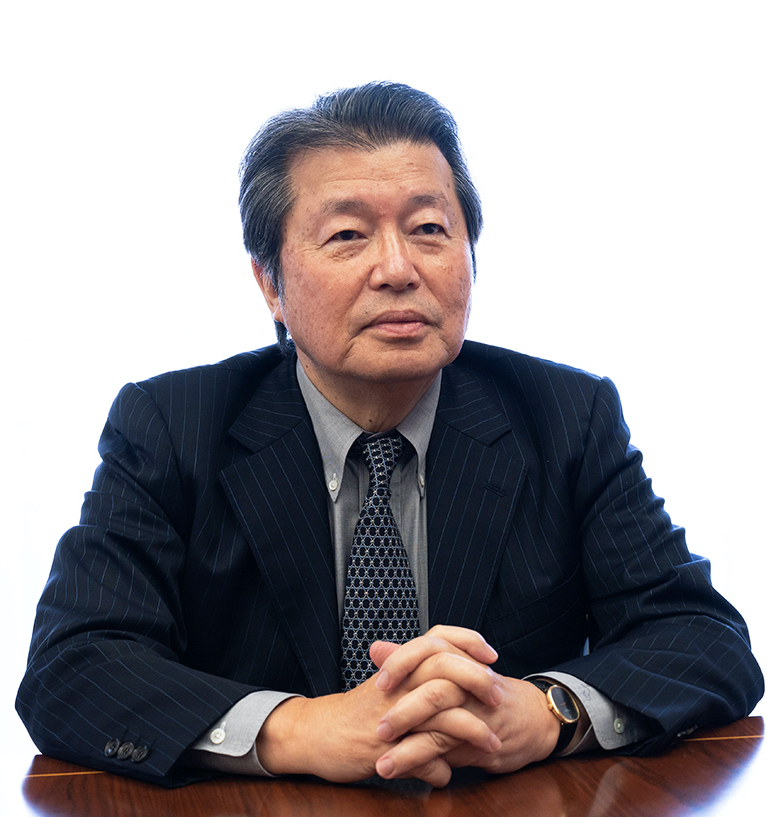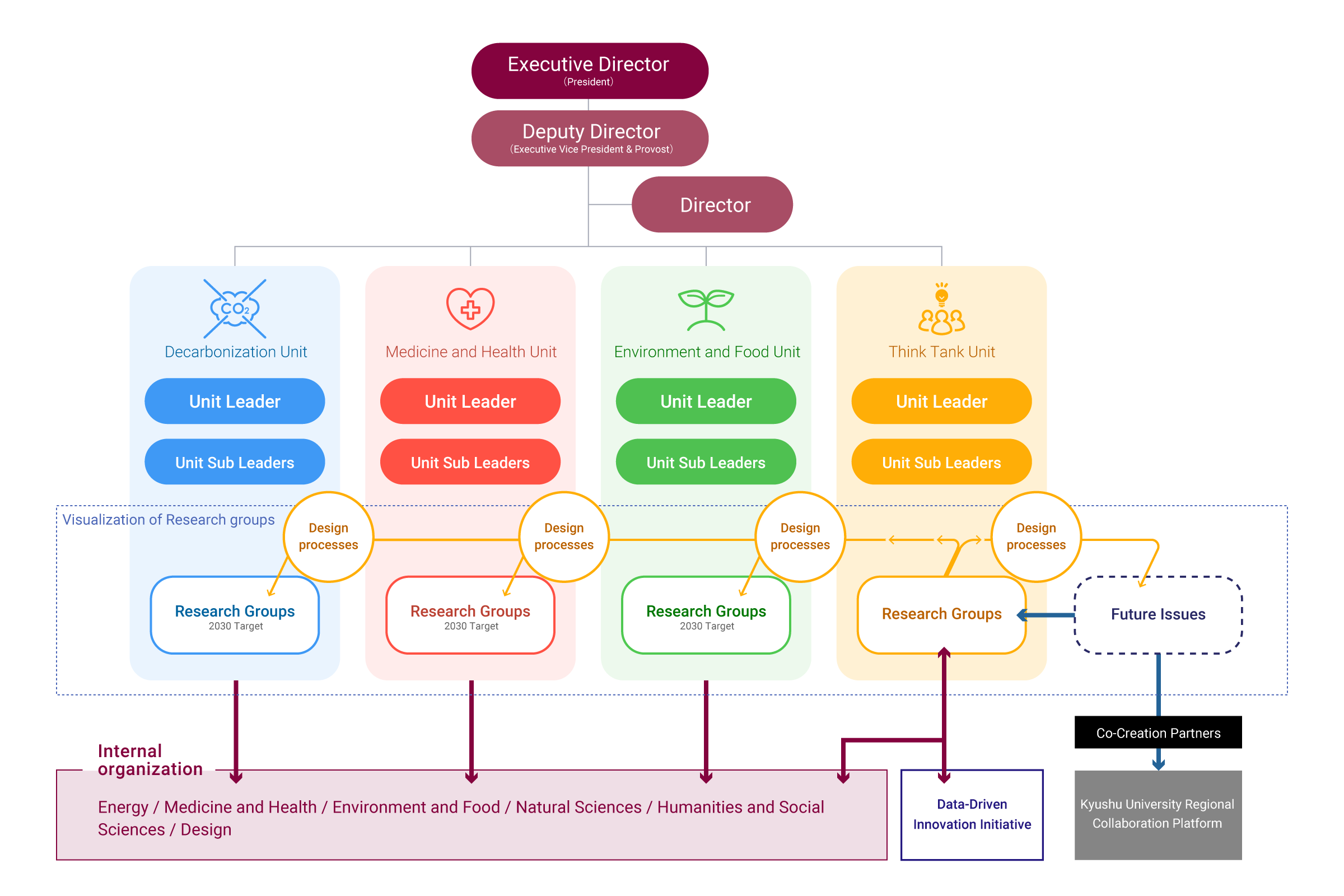In November 2021, Kyushu University announced “Kyushu University VISION 2030,” which outlines the university’s direction and policies for the next ten years. As an institution that aims to “drive social change integrative with knowledge,” we are committed to social transformation by tackling social issues and promoting digital transformation.
As one of Japan’s leading comprehensive universities, Kyushu University covers a wide range of academic fields from the natural sciences to the humanities and social sciences, and even design, that is unique among national universities and strongly related with driving social innovation. In April 2022, we established the Integrated Initiative for Designing Future Society with the goal of contributing to social change by generating integrative knowledge utilizing this distinctive foundation that creates new social value, something not found at other universities.
The world today is full of complex and challenging social issues such as climate change, biodiversity loss, poverty and inequality, conflict, and human rights abuses. To solve them, the UN introduced seventeen sustainable development goals (SDGs) at their 2015 summit, and national and local governments, private companies, and other organizations around the world are now working to achieve them. The COVID-19 pandemic has also had a significant impact on societies and economies across the globe, and there is an urgent need to reform and restructure our social and economic systems. Universities are places where a diverse range of talent and expertise converges and, as such, are expected to lead the creation of cutting-edge research and innovation and serve as centers for creating new value.
The newly established Integrated Initiative for Designing Future Society is Kyushu University’s central hub to bring together knowledge from diverse research areas such as the natural sciences, the humanities and social sciences, and design. Our initial focus will be on social issues related to decarbonization, medicine and health, and the environment and food, with the goal of creating a roadmap for for an ideal future society and designing the processes by which to achieve it by solving these problems. We are committed to integrating various research findings and implementing them in broader society to help solve the increasingly diverse and complex issues we face.




